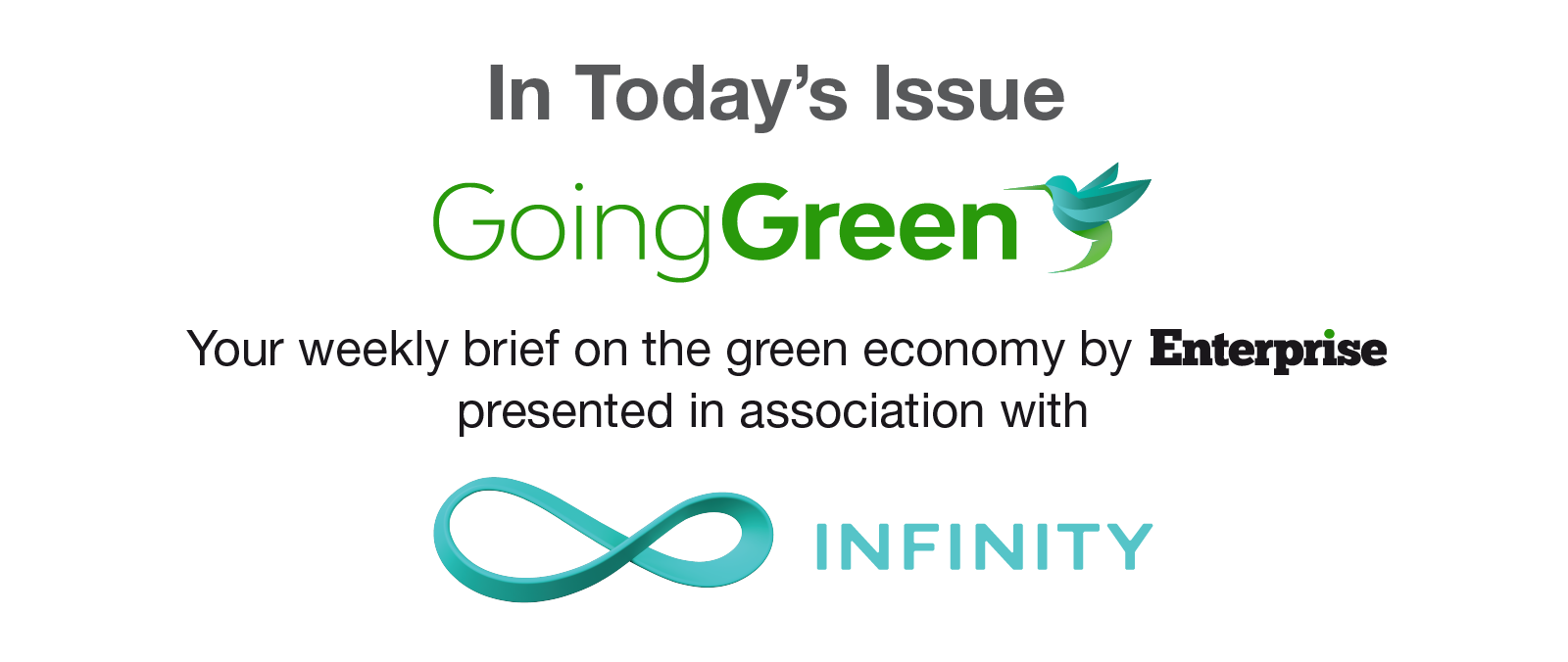THIS MORNING: Will Egypt get the all-clear to move ahead with its first-ever sovereign sukuk sale?

Good morning, nice people, and welcome to a very busy hump day with the big news being a development that we hope could break the privatization “logjam” and signal the seriousness of the Madbouly government’s rebooted program: Italian lender Intesa Sanpaolo is said to be looking past short-term uncertainty and will acquire the 20% of Alexbank it doesn’t already own.
A sale would be a very big, very important milestone for the rebooted privatization program: Investors and market watchers alike are waiting for the first big, tangible outcome after Prime Minister Moustafa Madbouly unveiled the contours of the program earlier this month. Investors need to see something substantial — not a secondary sale of equity in an already-listed state-owned enterprise — to have confidence. Intesa Sanpaolo doubling down on Egypt would unquestionably be one such signal, as would be progress on the sale of a stake in any of the world’s largest combined-cycle power plants built by Siemens, Orascom Construction and Elsewedy Electric.
Watch this space: The transaction could go through within days, we’re told. Timing may hinge on how soon a court can quash or rule on a decade-old nuisance lawsuit that aimed to unwind the privatization of Alexbank, which was previously a member of the Big Four club of state-owned banks (it’s now the “big three,” with members including NBE, Banque Misr and Banque du Caire — the latter of which is itself a perennial privatization prospect.)
^^ We have mode in this morning’s news well, below.
The EGX’s Gulf roadshow wraps: A delegation from the EGX, the Central Bank of Egypt, and the Financial Regulatory Authority (FRA) wrapped up on Friday its week-long roadshow in Riyadh, Abu Dhabi, and Dubai where they met with 20 investment funds and institutions to drum up interest in the government’s privatization program, according to a joint statement (pdf). Saudi sovereign wealth fund PIF and Abu Dhabi’s ADQ together invested USD 3.1 bn in government-owned shares in EGX-listed companies last year, and have reportedly expressed interest in several of the 32 companies earmarked by the government for privatization.
Good vibes? Institutions from both countries showed “great interest” in investing in Egypt, according to the statement.
Speaking of roadshows… A delegation from the Japan Overseas Infrastructure Investment Corporation (JOIN) will soon visit the SCZone to explore potential investments, the SCZone said yesterday. The news comes after SCZone Chairman Walid Gamal El Din’s visit to Tokyo, during which he met more than 100 companies and financial institutions to drum up interest in Egypt.
The roadshow has found “interest in the SCZone from the Japanese business community,” Gamal El Din told Prime Minister Moustafa Madbouly yesterday in Cairo. He said Japanese companies are mainly interested in planned green energy projects in the zone.
HAPPENING TODAY-
Will Egypt get the all-clear to move ahead with its first-ever sovereign sukuk sale? Investment banks yesterday wrapped up conversations with investors regarding a potential sukuk issuance by the Egyptian government. Both Bloomberg and Reuters have reported that the Finance Ministry is planning to sell a benchmark-sized USD-denominated sukuk — usually at least around USD 500 mn — with a three-year tenor.
President El Sisi will hold talks today with his Uzbek counterpart Shavkat Mirziyoyev, who arrived in Egypt yesterday for a two-day visit, according to a statement by Ittihadiya. Mirziyoyev yesterday met with reps from top local companies including Orascom Construction, Elsewedy Electric and El Araby Group, the president’s office said.
ICYMI- The results of the 2023 Enterprise Reader Poll are out: We published the results of our latest reader survey in yesterday’s EnterpriseAM. You can check out the results of the poll here.
THE BIG STORY ABROAD-
There are two stories dominating the global front pages this morning:
#1- Fresh earthquakes in Turkey: Southern Turkey has been hit by a fresh pair of tremors, two weeks after major quakes left tens of thousands of people dead and thousands of buildings in ruins. Twin earthquakes with magnitudes of 6.4 and 5.8 hit Turkey’s southeastern Hatay province yesterday, killing three and hospitalizing more than 200. The fresh earthquakes have further damaged buildings, with Hatay Mayor Lutfi Savas telling Turkish TGRT TV that some people were trapped under the rubble.
The quake was felt in Egypt, with no casualties or damage to property reported, the National Seismic Network said yesterday. (AP | Reuters | Bloomberg | NYT | BBC)
#2- Biden’s surprise visit to Kyiv: In a show of solidarity with the war-torn country, the US president made an unannounced visit to Kyiv today a few days before the one-year anniversary of Moscow’s invasion. During talks with Ukrainian President Volodymyr Zelenskiy, Biden affirmed Washington’s “unwavering” commitment to defending the country from Russia’s invasion which is expected to intensify in the coming weeks as Moscow launches a spring offensive in the country’s east. (AP | Reuters | Bloomberg | CNN | NYT | Washington Post | WSJ | BBC)
|
MORNING MUST-READ-
The four-day workweek is getting serious traction in the UK, with 90% of companies participating in the country’s largest-ever trial of the idea saying they’re going to keep testing it and 18 companies saying they’re making it permanent.
Why is a four-day workweek a good idea? Most participating companies said they found “sharp drops in worker turnover and absenteeism while largely maintaining productivity.”
It’s not just the UK: Companies in the US and Canada concluded similar studies (led by the same organizers), the idea is being tested in Australia and Brazil, and Unilever is piloting it in New Zealand.
The key to success: No goofing off, fewer meetings. Participating companies tried to ensure “work days more efficient with hacks such as cutting back on meetings and ensuring employees had more time to focus on completing tasks.”
SOUND SMART- Not every corporate “season” may lend itself to a four-day week — periods such as earnings season, for example, may demand an all-hands-on-deck approach even after you move to a four-day workweek, a whitepaper from the organizers suggests.
Go read all about it here in the Wall Street Journal or CNBC.
OR GO DEEPER in the official website for the trial, which is home to a white paper (no charge) and a paid book.
COME TO OUR NEXT ENTERPRISE FORUM-

We’re excited to unveil our next C-level event: The Enterprise Exports & FDI Forum, where we will take a deep dive into two of the most critical topics affecting our community.
Exports and foreign direct investment (FDI) have never been more important to our economy — or our businesses — than in the wake of the float of the EGP. We think we have a once-in-a-lifetime chance to build an export-led economy that makes us a magnet for FDI and all the benefits that will come with it for our nation.
Downtown’s Egyptian Museum is sliding into a new era: The Tourism Ministry yesterday unveiled a refurbished wing of the Egyptian Museum in Downtown Tahrir, which is now home to a 16-meter ancient papyrus discovered last year. The renovated wing marks the first phase of a refurbishment plan for the country’s oldest museum, which is being repurposed after the relocation of its collection to the soon-to-open Grand Egyptian Museum. The ministry used the inauguration to unveil the Waziry Papyrus, which was discovered during excavations in Saqqara last May and features 113 inscriptions from the Book of the Dead. The Associated Press also took note of the story.
SO WHEN IS THE GEM OPENING? The talkshows put that to Supreme Council for Antiquities chief Mostafa El Waziri earlier this week. She said that while the GEM itself needed about three months to finish preparations to open, the actual date is up to “the political leadership” to decide.
CIRCLE YOUR CALENDAR-
Check out our full calendar on the web for a comprehensive listing of upcoming news events, national holidays and news triggers.

*** It’s Going Green day — your weekly briefing of all things green in Egypt: Enterprise’s green economy vertical focuses each Tuesday on the business of renewable energy and sustainable practices in Egypt, everything from solar and wind energy through to water, waste management, sustainable building practices and how you can make your business greener, whatever the sector.
In today’s issue: Egypt’s renewable energy generation capacity treaded water in 2022,
with wind and solar capacity even registering slight declines. But despite the apparent halt in bringing new projects online, renewable energy output grew nearly 7%. What happened?